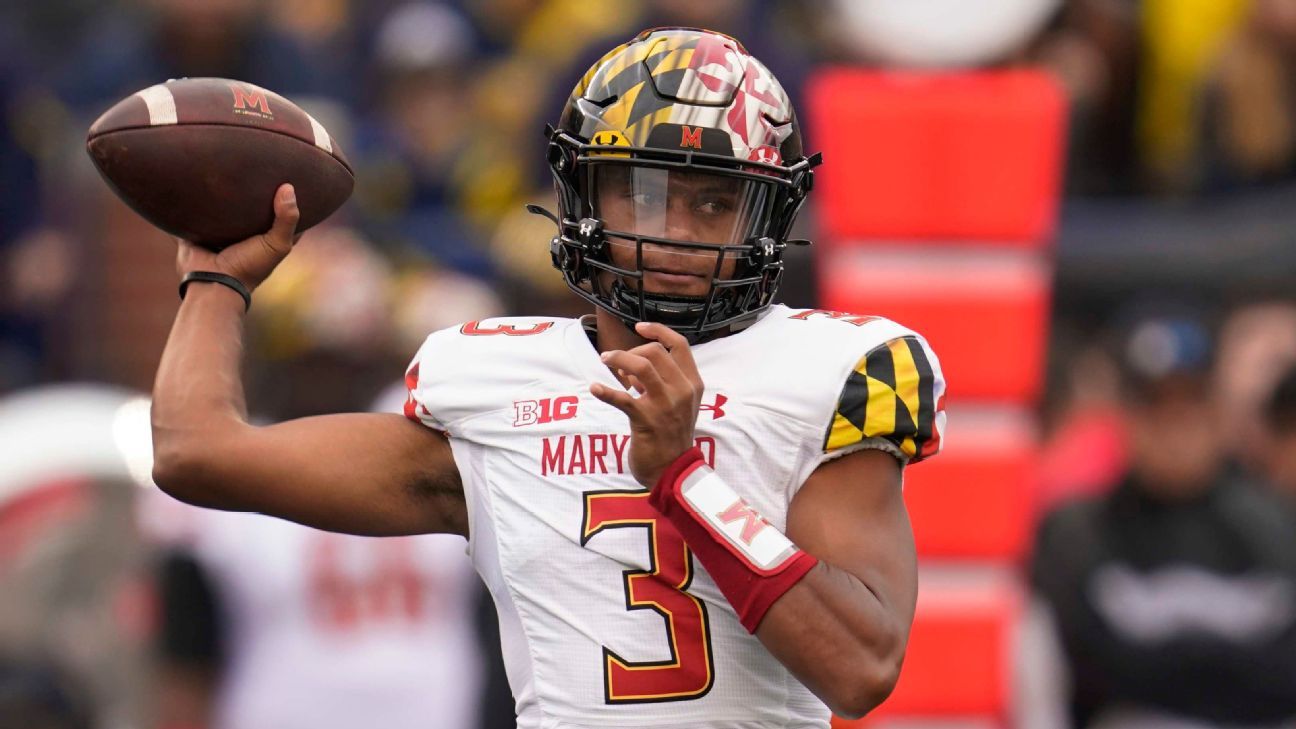Former Maryland quarterback Taulia Tagovailoa‘s waiver for an additional year of eligibility has been denied, sources told ESPN.
The waiver was denied despite coach Nick Saban and Alabama writing a strong plea of support to the NCAA.
As a result, Tagovailoa, who had entered the transfer portal this month, instead will begin training for the NFL draft.
When he entered the portal, Tagovailoa told ESPN that he had filed for a reinstatement waiver with the NCAA for a sixth year of eligibility.
Tagovailoa played five seasons, including his freshman year at Alabama in 2019. He went on to become the Big Ten’s all-time passing leader in the subsequent four years at Maryland, throwing for 11,256 yards. The 2020 season doesn’t count toward eligibility because of rules from the COVID-19 pandemic, which would have left Tagovailoa with another year if he’d redshirted in 2019.
The waiver request was centered around Tagovailoa playing in five games as the third-string quarterback at Alabama in 2019, playing just two snaps against Duke and another two at Mississippi State. He played 22 snaps the final week at Western Carolina. The maximum threshold for redshirting is playing in four games.
Tagovailoa had said that the waiver request for adding back the year of eligibility stems from the circumstances around that fifth game. He entered during the final snaps of a 38-7 blowout as a way to honor his brother, Tua Tagovailoa, who suffered a severe hip injury.
Maryland filed the waiver on behalf of Tagovailoa, who said that Alabama has been very supportive of him in the process and there’s no hard feelings toward the coaching staff for the decision. The two snaps were handoffs at the end of a blowout, which were the final two plays of the game.
“It’s with the NCAA right now,” he said. “We’re all just a waiting game on seeing if it gets approved or not.”
Tagovailoa is projected a Day 3 pick, and he had hoped another year could help him.
He has 77 career touchdown passes, one of which came during that 2019 season at Alabama. He completed more than 66% of his passes his final three years at Maryland.
